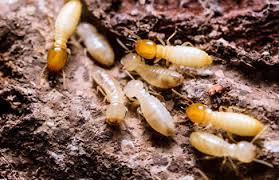A Biased View of Termite Control Injection
We recommend 3 or 6 monthly inspections be performed for the first 2 years following a chemical soil treatment. Monitoring of "stand-alone" baiting systems
BE AWARE the correct identification of harmful termite species, inspection of a building for tell-tale signs, analysis of circumstances and implementation of an effective termkite control program requires expert skill and judgement depending upon professional training and extensive field-work experience in termite control in a wide variety of circumstances.
Since termites can ruin your home, you should call a professional any time you see them even when theyre in your garden away from your house. Colonies can be enormous, and a nesting site could be a great deal closer to your home than you think. Even if you dont see termites, have routine professional termite inspections to look for signs of termite activity and execute any necessary area treatments.
Termite Control In Soil - The Facts
The preventative approaches weve outlined above will be good habits to embrace, and the treatment approaches will be useful as part of a full-scope treatment process for getting rid of any termites or infestations. Yet even under optimum circumstances, only a small number of termites will be ruined by DIY methods, leaving hundreds of thousands to choose their own places.
Professional pest control providers which specialize in termites know how to locate colonies, assess damage, and identify entry points. They usually use numerous kinds of treatments to goal termites, including planting termite bait traps laced with insecticides (such as Termidor termite treatment) in strategic areas in your lawn as well as using insecticides around your home.
Little Known Questions About Termite Control Injection.
In extreme instances, a pest control company may elect to utilize sulfuryl fluoride or alternative fumigation agents as a whole-house termiticide. .
Be sure the pest control company that you choose has the experience and experience needed for termite treatments. Preventing a termite infestation needs a very specific skill set, and deviating from best practices even marginally can undermine both your protection against termites and your investment in your home.
Get the newest from TODAYSign up for our newsletterSUBSCRIBENov. 2, 2018, 3:33 PM GMT / Source: TODAYBy Chrissy CallahanWhile theyre certainly less common than your average insect, termites can cause a whole lot more damage than most other pests, and can even threaten the structural integrity of your property. That is because they can chew through wood, flooring and even wallpaper without you ever even noticing! "The problem is that you typically don't find them due to their underground tunnel and if (they're ) in the home, they're within the walls, attic, etc.," explained Dr.
They can disperse in an underground tunnel that is more than 150 feet long, and feed on various wood materials within the environment.Drywood termites, on the other hand, are harder to detect and are common in the Southeast and Southwest try this web-site regions of the U.S."Drywood termites have a different sort of biology that allows them to infest homes without coming in contact with the soil.
The 20-Second Trick For Termite Control In Soil
However, you can keep an eye out for a number of the telltale signs of a termite infestation:Wood damage: According to Mannes, termites love to eat wood from the inside out, so if your timber official site sounds hollow when you knock on it, then you might have a difficulty. Rotting wood is also a dead giveaway of a termite problem.Mud Tubes: Subterranean termites need moisture whenever they travel back and forth between their colony and their food source, so they build mud tubes.
"If you see ant-like creatures both with and without wings, in addition to lost wings on the ground in the region where the swarm happened, it might be infested," Cooper said.Termites especially enjoy wood that has come in contact with the soil.AlamyAre termites dangerousThe great news Termites won't negatively affect your health.

The 8-Second Trick For Termite Control In Soil
However, the structural damage they can do when left unchecked can be incredible! Hartzer said.According to the National Pest Management Association, termite infestations can cause more than $5 billion in property damage every year. Yep, that's billion with a"b."If that's not bad enough, consider this: many homeowners insurance policies don't cover termite damage.
Since many homeowners don't detect a termite problem until it's rapidly spread, it's difficult to contain the situation without the help of a professional. "Termites can cause widespread harm, so it's always best to work with a skilled professional in the event of an infestation. Depending on the species, professionals will recommend a treatment that's tailored to your own homes needs that could include anything from a liquid treatment to a baiting system or, even in the instance of drywood termites, even fumigation," Cooper said.At the same time, that doesn't mean you can't try just a tiny DIY pest control of your own, and try to steer you can try here clear of termites in the first place:Don't overdo it on the mulch! Keep it 15 inches away from the foundation.Seal any holes or cracks on your home's exterior.Keep firewood (and any other timber ) at least 20 feet away from your home and five inches away from the ground.Keep an eye on any exterior wood, including door frames, windows and skirting boards, for any visible changes.Send water away from the residence.